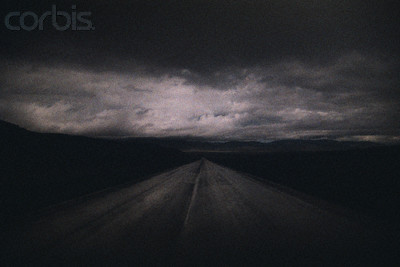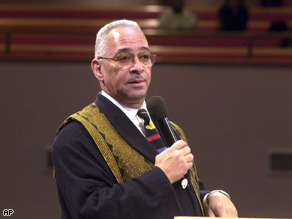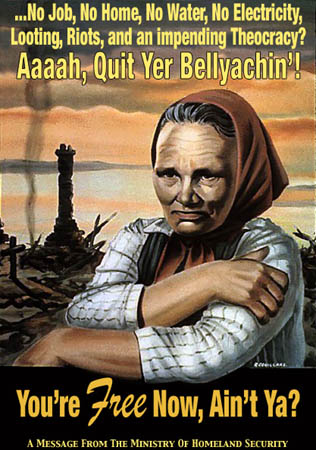
The following is a piece I originally wrote on September 11, 1990. I was sitting on the foredeck of a houseboat, going upstream on the Mississippi River with my friend X, and about 15 other close friends. That was a very important weekend to me, as I learned a lot on that trip. I have a wonderful photo that either X or F took of me that trip.
In any event, the reason I am posting such an old piece of prose is that while I was away in London and Prague recently, I kept thinking about the sentiment, contained herein, of documentary living. Everything recounted in this story happened to me during that very long Labor Day weekend in 1990.
Here it is, make of it what you may…
Whenever I see you, you’re reading. How many stories have you lived? How many words are in your soul? Do you digest all of these expressions and prose, make them part of you, or are they like bath water, washing over you and then rinsed away. These words, these souls, these lives which you consume like so many hors-devours at a nickel buffet, do they satiate you in some way? Some way that your own life does not?
A character in a book I once read escaped, ran for miles to be free. Does this happen to you? Escape? Or is it a grounding experience? When I was a child, my mother would read to me. I escaped, I left my own life and entered that of the character in the story of the moment. It was freeing – listening to the sound of my mother’s voice, closing my eyes and realizing another life. As I grow older, I sometimes find escape again in the pages of a book, imagine her voice, but it lacks – I cannot close my eyes or the story ends.
Does your story end? Is that why you read so much, like a chain smoker who won’t allow for a moment without a lit cigarette in their hand, you put down one story and take up another. Are you afraid of your own, or are you so comfortable with it – having crafted it from all that you have read from others?
As life races past me at freeway speeds, I try to capture some of my reflections in the written word. Like the mirror I face in the morning, they remind me of how much I’ve already died. Every day they have made me a prisoner, held me for a handsome reward. Since the first time I recounted my experiences on a piece of paper, I find myself writing those words in my mind as I experience – Documentary Living.
A light fog lies in the valleys at night. The full moon paints it an eerie blue. I’ve traveled these roads sometime before. I know the curves, the signs, the lines which twist beside me as I drive. The road rises and falls before my eyes, like your chest as you sleep beside me.
The night sky closes around me like the coat clutched tight on a winter day. The only sound I hear is my own scream lost in the wind blown past my window, the road passed under my wheels, the tree lines lost from view, the cigarette which now is ash. A voice on the radio tells me the time, announces a song, reads the news.
I’ve put eight hundred miles of rattles on these bones in the last two days. Eight hundred miles of driving through other people’s realities, other people’s homes and villages, other people’s pathos. The midnight sky outside hides the cold of fall under a veil of summer stars. I cannot close the window although I keep the heater on. The radio plays loud.
A verse turns over, again and again in my mind, as I drive. The steady rhythm of the road provides a frame for me to fill, the night – a canvas to place there. The words seem to flow in and out of my thoughts as if from nowhere – I know not the inspiration for their presence, nor the excuse for their leave.
I once read that dreaming is just what part of our brain does to occupy time as the rest of it carefully files our day’s experience into the deeper cubby holes of our minds. People can die from lack of sleep. Is it sleep they lack, or dreams? Is it that our brains get snowed under from all of these experiences, and forget how to make us breath?
As I drive, I feel as though that part of my brain which handles these menial filing chores has decided that this is as good a time as any to get the job done, and does so. I am not dreaming though, I am wide awake and driving a car, as the odd snippets of the past several days’ experiences drift across my consciousness on their way to permanent storage.
One of them goes like this:
I saw the astronauts sleeping, tucked tight in their little sacks and Velcro-ed to the wall, their hands floating before them in space like unnecessary appendages. I felt like an interloper, a peeping Tom, invading their space-bound womb, to see them all drift as fetuses in the amniotic fluid of a deep sleep. Over their heads, through the windows, I saw the earth. A patchwork quilt of cloud and clear. I felt very very small, and floated, like their hands, like an unnecessary appendage.
And another, like this:
I am sitting in a fiberglass car, an old fashioned Hupmobile, being dragged along a track, serenaded by the rantings and ravings of a maniacal horse on a tinny loudspeaker. The buggy turns, first one way and then the other, revealing to me a view of the world I would never have expected existed. Pathetic statuettes, animated and gesticulating wildly, enact various moving tableau, recreating a sickening history of mankind’s foibles with his cars.
Children cry and their mothers sob with frustration as the derelict plants and factories, long since abandoned for some capitalist cause, stand as testament to their hardships and suffering. But me, I’m trapped in this buggy, with this ranting horse, watching as a plaster of Paris American eagle fans its wings at me, declaring the importance of the car in creating a united country, its tattered wingtips threatening to fall off at any moment.
As I ride, I ponder whose nightmare is this? What mind conceived of this, and are they getting therapy? Later, having a drink by the ferris wheel, it leaves me numb.
I did not intend to drive this far, this long. I took a wrong turn right out of the parking lot. I don’t know if it was pride or a sense of adventure which led me to continue and not turn back earlier. I crossed the state line about ten miles out, and that was over half an hour ago. As I drive now I try to convince myself that I am just skirting the border. I have no way of knowing if that is true – I have no map, there is no sun to guide me, I cannot even see the Northern star through my windshield. As the signs proclaim “Chicago – 58 miles,” I just trust.
At first I screamed at every intersection with a road I did not know. Now, however, I enjoy it. It is a lovely night for a drive: the road is new, the weather brisk, the radio adequate. The sky is pitch dark, except for a crisp, full moon. My heart is full with possibility and my head is soft with the smooth flow of a dreamy consciousness. I know I will be home in time for work tomorrow, that is not even a question, and beyond that I do not care. For now, I am drunk with the drive and the night and the memory of your smile.
That is enough.
These are all words which have been written across the blackboard of my mind, waiting patiently in a queue, ’til now, to be moved to paper.
I guess the day will come when I will write my life before it happens. Will you read it then? Will you tell me what my experiences will be like, warning me of those which lack literary merit? Or is my destiny more like that of the bath water.
Ther you have it. X, what do you think?














 Here is an excerpt from the New York Times obituary of Weizenbaum:
Here is an excerpt from the New York Times obituary of Weizenbaum: Mr. Giordano was best known through the performing of his company, Giordano Jazz Dance Chicago, founded in 1962 and based in Evanston, and through his teaching at dance conventions throughout the United States.
Mr. Giordano was best known through the performing of his company, Giordano Jazz Dance Chicago, founded in 1962 and based in Evanston, and through his teaching at dance conventions throughout the United States.